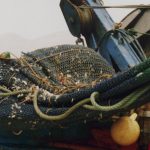The U.S. government has announced to impose new restrictions on the fish catches in Caribbean waters to control the decreasing stocks of species. The government says that previous types of restrictions haven’t protected dwindling populations of dozens of species. The new limits cover the waters off Puerto Rico and the U.S. Virgin Islands and will go on effect from Monday. This has angered the fishermen saying the limitations on species including the highly prized spiny lobster and queen conch will endanger their livelihood.
Roy Crabtree, southeast regional administrator for the National Oceanic and Atmospheric Administration, said that the restrictions in these territories could lose more than $1 million a year. But creating a healthy reef ecosystem is a priority. The U.S. Coast Guard is expected to enforce the annual catch limits with help from local authorities. Both commercial and recreational fishermen are supposed to report their catches, but some fishermen say enforcement will be hard.
NOAA’s report states that the new measure will hit the U.S. Virgin Islands the hardest, especially St. Croix, with small businesses there expected to lose up to $1.2 million a year. The new limits could keep some fishermen from working the full year. David Olsen, chief scientist with the St. Thomas Fishermen’s Association, said that they are not happy with the new limits as it may discriminate against the Virgin Islands.
Federal and local officials say the U.S. Virgin Islands has nearly 400 commercial fishermen and an estimated 10,000 recreational fishermen. Puerto Rico, meanwhile, has an estimated 200,000 recreational fishermen and about 1,000 commercial ones. Crabtree informed that the U.S. authorities created the new limits using catch reports that fishermen in the two territories submitted in recent years.








